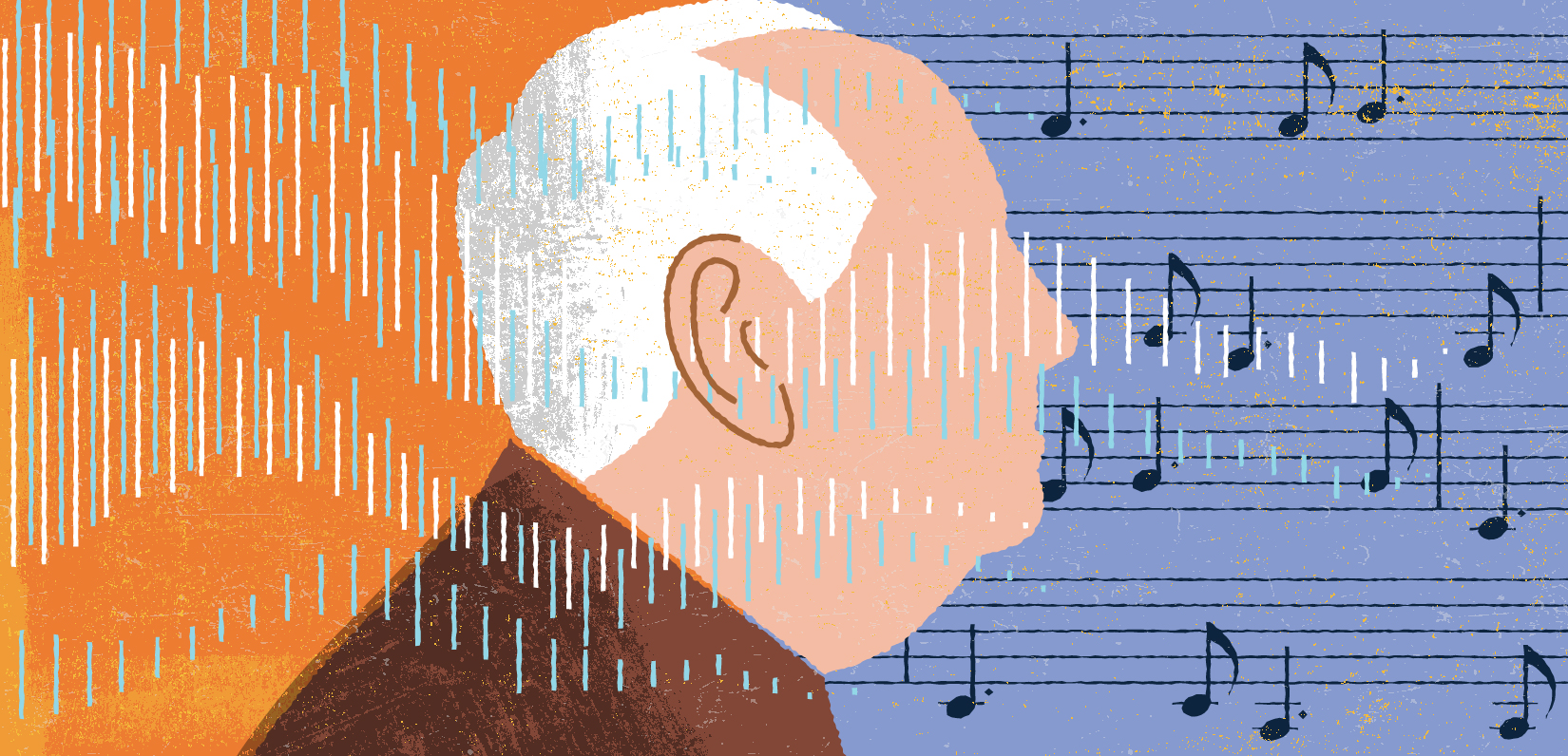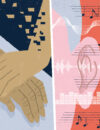Among older people with mild cognitive impairment, exposure to 40 Hz sound—a specifically timed buzz pattern—has shown promise as a non-pharmacological tool to soothe the brain and slow signs of dementia. Unfortunately, the repetitive sound is annoying to some and labeled insufferable by others. In the same population, music has shown promise as a non-pharmacological therapy, though evidence supporting its effectiveness for delaying cognitive impairment has remained inconclusive.
So researchers, including lead author Claire Wang, Sarah Szanton, and Junxin Li (Principal Investigator) of the Johns Hopkins School of Nursing, are playing deejay, as they report in “A Qualitative Exploration of 40 Hz Sound and Music for Older Adults with Mild Cognitive Impairment” (Geriatric Nursing). Researchers took test subjects’ own playlists of roughly 30-60 songs—with “memory-boosting and emotional benefits”—into the studio, matching the 40 Hz pattern to these tunes and dialing in the blend and volume. (“A novel combination, termed 40 Hz music.” The buzz is still audible but more acceptable to more patients when wrapped in a familiar beat.)
“Participants received guidance to dedicate an hour to listening—preferably at least 3 hours prior to bedtime—with a recommendation to concentrate exclusively on the audio during this time. If other activities were necessary, they were advised to choose tasks that were not mentally strenuous, such as walking or simple household chores. To support adherence to this routine, daily reminders and surveys were dispatched through text messages, and a member of the research team made weekly follow-up calls to reinforce commitment to the protocol.”
Positive signs are music to the ears of researchers, who realize there is more tinkering to do in building on the promise of 40 Hz methods.


